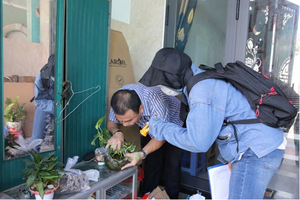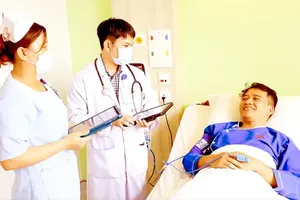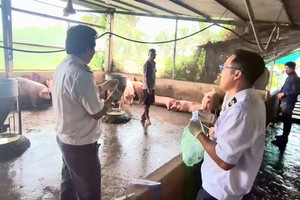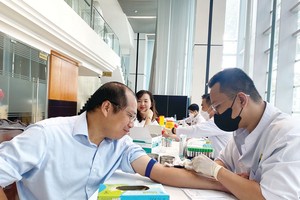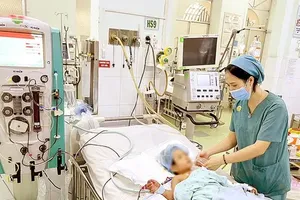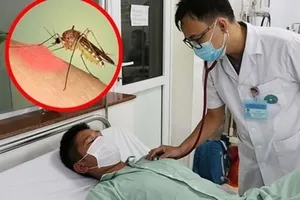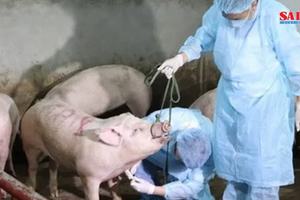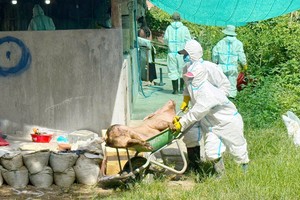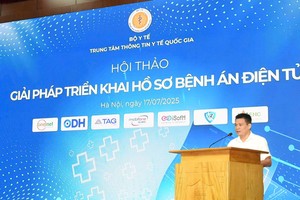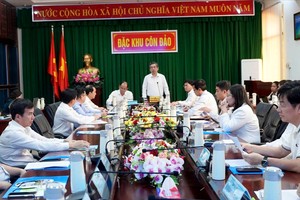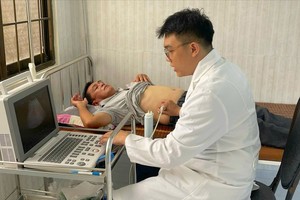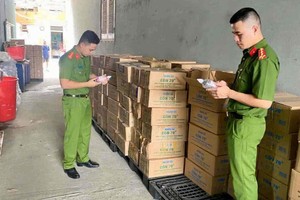HCM CITY (VNS)— Doctors at Can Gio Hospital in HCM City's outlying district earlier this year performed an emergency surgery to deliver the baby for a 25-year-old patient with ectopic pregnancy.
A surgery to deliver a child growing outside the uterus had never been done at the hospital before.
In performing the operation they were helped by doctors from the city's Hung Vuong Obstetrics and Nguyen Tri Phuong Hospitals, though only over the telephone.
Tran Ninh Bao Nhi, head of Can Gio Hospital's obstetrics ward, said in the past such cases had to be transferred to city hospitals like Hung Vuong and Tu Du.
But this time they decided to operate on her since there was not enough time to safely transfer her, she said.
She called doctors at Hung Vuong and Nguyen Tri Phuong to seek help with anaesthesia and the surgery. Every major hospital in HCM City – and other main cities — has a room dedicated for communicating with grassroots medical facilities in case of emergencies.
The surgery turned out successful, a happy Nhi said.
Besides, the hospital doctors' skills had received a boost as had that of other specialists who had to do procedures like spinal and endotracheal anaesthesia, she added.
The process of upgrading skills has in fact been going on since the Ministry of Health and the city started programmes in 2008 to send doctors from speciality hospitals in cities to lower-level hospitals to improve the quality of treatment at these places.
This has resulted in improving people's trust in hospitals like Can Gio, which now refers less than 10 per cent of its patients to city hospitals for treatment.
It set up a paediatrics ward with assistance from the city-based Paediatrics Hospital No 2 last December, and it receives 90 children every day and sometimes as many as 120.
Tran Thi Hoa of the district's Long Hoa Commune, who took her year-old grandchild to the hospital for treatment, said the new ward save the cost of travelling to the city for treatment.
"It is very convenient for me and others with young children," she said, adding that the doctors there are solicitous.
Ly Van Hang, deputy head of another public hospital in an outlying district, Cu Chi, said the programme has helped improve doctors at his hospital.
Under the programme, a doctor in a city hospital is sent to district hospitals for a period of at least one year.
According to the city Department of Health, more than 50 specialists have been sent to district hospitals since December. They have trained 130 doctors and themselves treated 37,000 outpatients and 445 inpatients, performing 141 surgeries, it said.
Doctor shortage
Nhi admitted however that the programme cannot resolve the shortage of specialists at district hospitals.
For instance, though her hospital set up the paediatrics ward, it does not have a specialist yet and its doctors are all from the Paediatrics Hospital No 2, who return to the city during weekends, she said.
"It is very important to resolve the shortage of specialised doctors at district hospitals."
Dr Nguyen Thanh Tue of the Nguyen Tri Phuong Hospital, who has been sent to Can Gio Hospital, also said that complicated surgeries cannot be performed at the hospital because of the shortage of equipment.
He rued the fact that his and other doctors' skills are not being taken advantage of despite being sent to lower-level hospitals.
Dr Phan Van Nghiem, deputy head of Nguyen Tri Phuong, lamented that the hospitals that second their specialists end up facing a shortage of doctors.
His hospital has been asked to send eight doctors, and the burden of their absence has to be shared by the ones remaining.
"Patients wait longer for treatment because the number of doctors is lower."
Nguyen Thi Ngoc Tho of Hung Vuong Obstetrics Hospital who has been seconded to the Can Gio Hospital complained that working at district hospitals is disrupting her personal life.
"My three-year-old child has to be sent to my parents' when I work at Can Gio during the week. I return to the city only during weekends."
